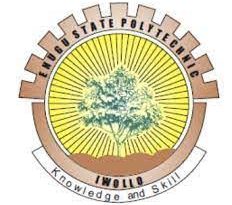History of College of Agriculture, Science and Technology, Lafia
College of Agriculture, Science and Technology, Lafia (formerly College of Agriculture, Lafia) is a pioneer Agriculture institution which has in the past 40 years devoted itself to training of young men and women in the art, science, technology and practices ofmodern agriculture.
In another words, the college has nurtured engineers, farmers, agricultural entrepreneurs, business and spiritual leaders, public servants, scholars and teachers in the nearly every fields of Agricultural Science and beyond.
This foremost institution leaves an indelible mark on the lives of its students, connecting them to an extraordinary history and challenging them to discover and define their purposes in life.
Expanding the scope/mandate of the Colelge has become imperative to create the interface between Agriculture, other sciences and engineering tofast track economic development.
It is with great honour and delight that I present to you on behalf of the Council, Academic Board, Management Committee, Staff and Students a brief on the new mandate of College of Agriculture, Science and Technology, Lafia.
In this, you will find a Polytechnic with a diversified operational framework that will help address the rising demand for scientific and technological adaption in various sectors of agriculture that are in line with internal best practices.
Please join me and explore the exciting academic world of College of Agriculture, Science and Technology, Lafia.
Among the most important institutions in the revolutionary dvelopment of agriculture over the last 50 years are the Colleges of Agriculture. As brain center for agricultural progress, they provided with their research efforts for the scientific knowledge base, their training increased the quality of the human agent of production, and in many cases; their extensionadvisory activities brought new knowledge down to the peasants.
College of Agriculture, Science and Technology, Lafia, Nasarawa State (formerly College of Agriculture) was established in 1977 as a school of Agriculture under the Ministry of Agriculture and Natural Resources by the then Government of Plateau State to train certified agricultural assistants and middle-cadre manpower.
At the end of the 2-year training programme, graduates are well equipped to assist researchers to manage fields and collect data or serve as field assistants in the extension system. The institution during the period awarded Diploma certificates in General Agriculture and Home Economics.
In 1987, the school was elevated to the status of a College of Agriculture via an Edict No. 13 of 1987 by the then Plateaus State Government to enable it offer courses leading to the aard of National Diploma and Higher National Diploma certificates. The metamorphism to a College status was done in line with the Federal Government Decree No. 16 of 1985 which empowered the National Board for Technical Education (NBTE) to moderate and accredit academic programmes of technological institutions in the country.
Following the creation of Nasarawa State in October, 1996, the enabling law was re-enacted as Edict No. 15 of 1996 by the Nasarawa State Government to reflect the new dispensation as Nasarawa State College of Agriculture, Lafia.
The entry of the NBTE resulted in an overall enhancement in the physical facilties and standardization of the curricula for the various academic programmes. The entry requirements were also upgraded according to National Standards for Tertiary Institutions. Thus, the admission process transformed from locally conducted Entrance Examinations to the Polhtechnic / Mon-technics and Colleges of Education Entrance Examination (PCE), and now Unified Tertiary Matriculation Examination (UTME) conducted by the Joint Admission and Matriculation Board (JAMB). The graduates of the College has since been offering both National Diploma (ND) and Higher National Diploma (HND) in key areas of agriculture.
Pursuant to the stragic plan and the new mandate of the College, the institution is structured into seven (7) Schools and Twenty Four Academic Departments to run programmes in Agriculture, Applied Sciences and engineering technology.
The institution is strictly guided by the College law, Conditions of Service, Students Handbook and other relevant extant laws/rules in carrying out its mandate.
Source: coastlafia.edu.ng




